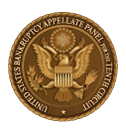The Court will generally schedule argument sessions in Denver, Colorado, in the Byron White U.S. Courthouse, and non-local parties may appear by video or telephone. This Court will arrange for and establish a telephone conference or video link with personnel at the local district court. Each local district court location is equipped with a podium for argument and appropriate video conference equipment.
Tips for presenting argument by video conference include the following:
- Act Natural. The panel judges will be able to see and hear you just as if you were presenting your argument in person.
- Make Eye Contact. The camera is typically located on top of the monitor. By looking at the judges on the monitor, you will give the judges the sense that you are looking at them.
- Use Your Normal Voice. The podium microphone and system speakers will pick up and transmit your voice as clearly as if you were arguing to the judges in person. There is no need to speak louder or slower than you would in a normal courtroom setting.
- Avoid Exaggerated and Unnecessary Gestures or Movement. Remain standing behind the podium. If you move away from the podium, you may be out of camera range and not visible to the panel judges. While normal gesturing can enhance your video conferenced argument, extreme or exaggerated hand and arm movements can be distracting.
- Dress Conservatively. Dressing for a videoconference will be different from dressing for a face-to-face argument session. In general, light blues and grays work well; reds, fuchsia, and bright blue do not. Bold patterns, bright white shirts and blouses, ruffles and trims, and dangling or shiny jewelry, might be distracting and may cause a strobe effect.
- Avoid Unnecessary Noise. Noise, such as that caused by tapping on the podium or shuffling papers, may be transmitted through the system to the panel judges, thereby making it difficult for them to hear or concentrate on your argument.
